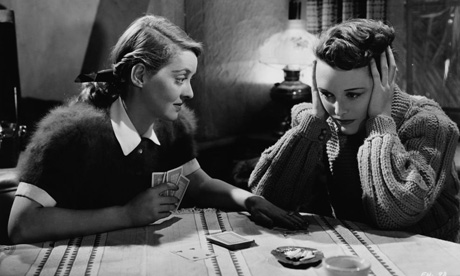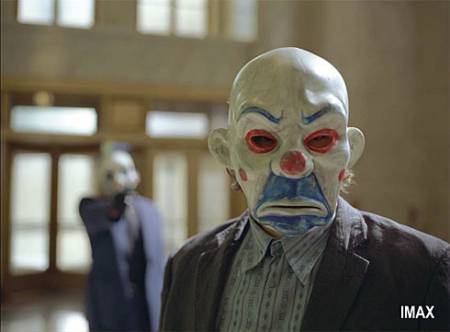 Here it is, the musical classic Cabaret. It's actually pretty depressing, and a bit light on the whole "musical" aspect.
Here it is, the musical classic Cabaret. It's actually pretty depressing, and a bit light on the whole "musical" aspect.Anyway, the film stars Liza Minnelli as Sally Bowles, the daughter of a U.S. ambassador who sings at the Kit Kat Club in Berlin. The Kit Kat Club is a place of "divine decadence", where ladies and "ladies" wrestle in the mud or sing songs about threesomes. All of these wild acts are overseen by the creepy Master of Ceremonies (Joel Grey), a little man with painted on cheeks who looks like a marionette. Anyway, Sally meets British writer Brian Roberts (Michael York), who may or may not be gay, and establishes a relationship with him, talking about her relationship with her father as well as her aspirations to becoming a big star. While all of this is going on, the Nazis are gaining power and the political environment is becoming darker and more hostile. It's also interesting to point out that Bob Fosse doesn't make every musical number turn into some sort of cotton candy colored gay fantasia that seems to exist on a limitless stage, instead the costumes are pretty cheap and we see the entire size of the stage, which serves to remind us that the numbers take place in a sleazy little club, that this isn't a happy, magical place.
Being a musical, this film is pretty light on actual musical numbers, there are only a handful of songs, and they're all performed in the context of the Kit Kat Club. Which is one of the main themes of the movie, using the acts of the Kit Kat Club to juxtapose the violence occurring outside its walls. While a Jewish girl is being harrassed, we see the M.C. in drag goosestepping around the stage, mocking the Nazis, or he's singing a ballad about his love for a gorilla, asking the audience to accept their love because no one can choose the direction of their own heart. This theme adds a lot of very sudden, very random shots inserting themselves in the film. You may see a man being beaten to death with a quick flash to girls dancing in the Kit Kat Club, or to the M.C.'s grinning face. For some, I can imagine that it can be very off-putting.
Now, for the performances. Liza Minnelli totally knocks it out of the park as Sally, offering the performance of a lifetime. Sally is a insecure young woman who wraps herself in grand gestures and this overblown mythology about her sex appeal, her ability to shock people, and her own quirkiness. You can see just how deliberate this act is when Sally drops the facade, gone is the campiness, instead leaving a vulnerable woman with
 dreams that she knows will probably never come true.
dreams that she knows will probably never come true.Joel Grey (who won the Oscar as well as Minnelli) is brilliant as the M.C. He displays such twisted, impish delight at the ongoings at the club, and the fact that we never see him outside the Kit Kat Club (let alone outside a stage performances) just adds to the mystery and oddness of his character, since we have no idea who or what the hell he is.
This film holds the records for most Oscars ever won without an actual Best Picture win (it won eight), and it's truly deserved. Bob Fosse has crafted a masterpiece that is entertaining, but sad and shocking as we learn that the Kit Kat Club may be the only place in Berlin were people can be truly free, and even that may be coming to an end.













